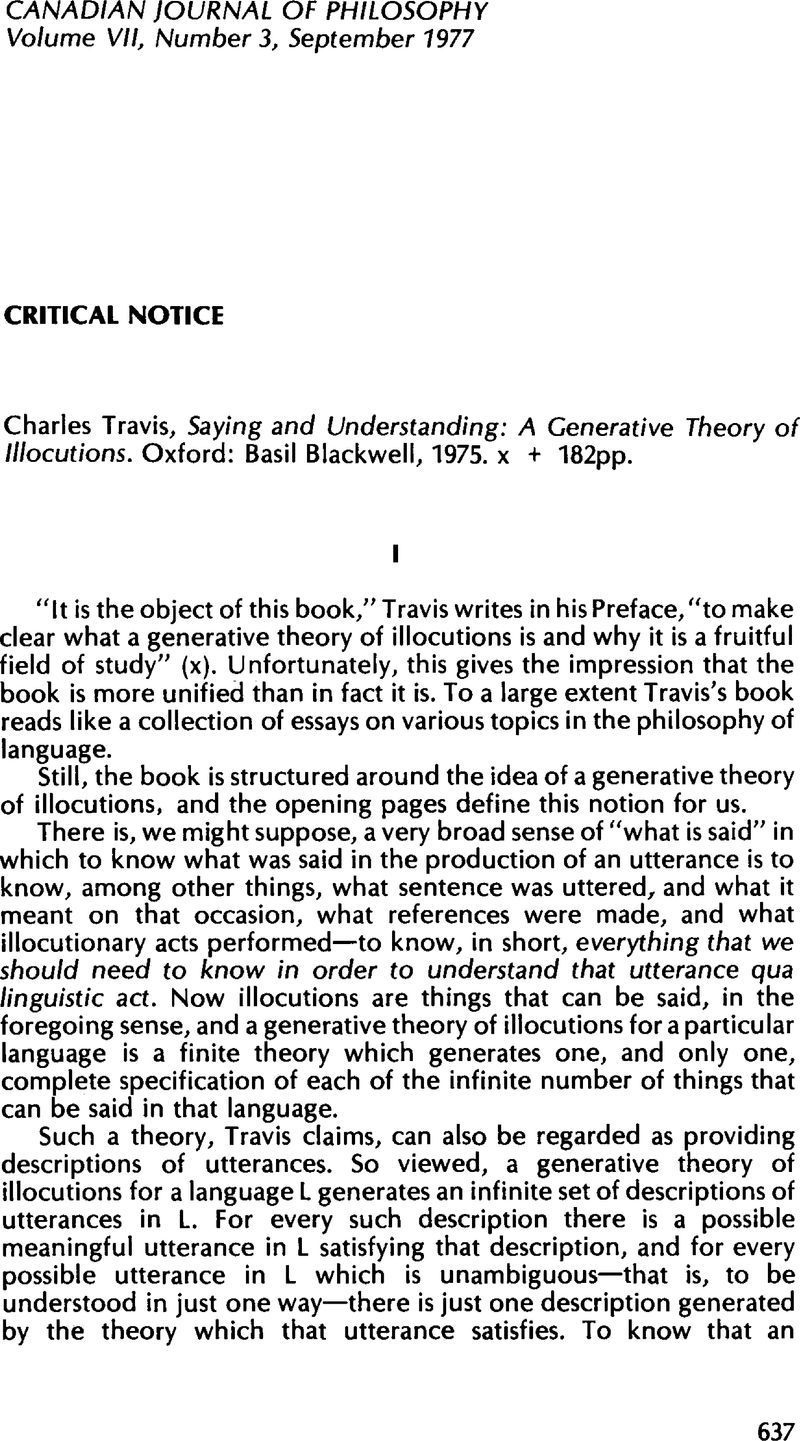No CrossRef data available.
Published online by Cambridge University Press: 01 January 2020

1 Travis has chosen an unfortunate example, since, on his theory, the references of the titles contained in these descriptions must also be specified by sets of properties.
2 Travis also holds that the specification of these properties within the illocutionary description is to be “given by sets of predicate phrases, under a given syntactic description, each paired with an appropriate semantic interpretation” (16). I must confess to finding this wholly incomprehensible: either the metalanguage in which the theory is stated has the wherewithal to specify the relevant properties, or it does not; if it does, then those properties can be directly specified within the metalanguage; if it does not, then it cannot give interpretations of object-language predicates whereby they could specify the properties.
3 I have substituted “literal” for Travis's “correct“; for his definition would be obviously false, and irrelevant to the issue, if he were really defining a correct, as opposed to a literal, use. It is not wrong to use a predicate ironically.
4 My guess as to what is going on here is this. Travis's theory of reference, which is the only kind of theory compatible with the possibility of a generative theory of illocutions, requires that references be specified by descriptions in general terms alone; but the only descriptions of this sort available for specifying a given temporal reference will be satisfiable by utterances occurring at different times. Travis, assuming the correctness of his theory of reference, swallows the consequence, when he should have recognized that he was here confronted with a counterexample to his theory. I return to this problem in the next section.